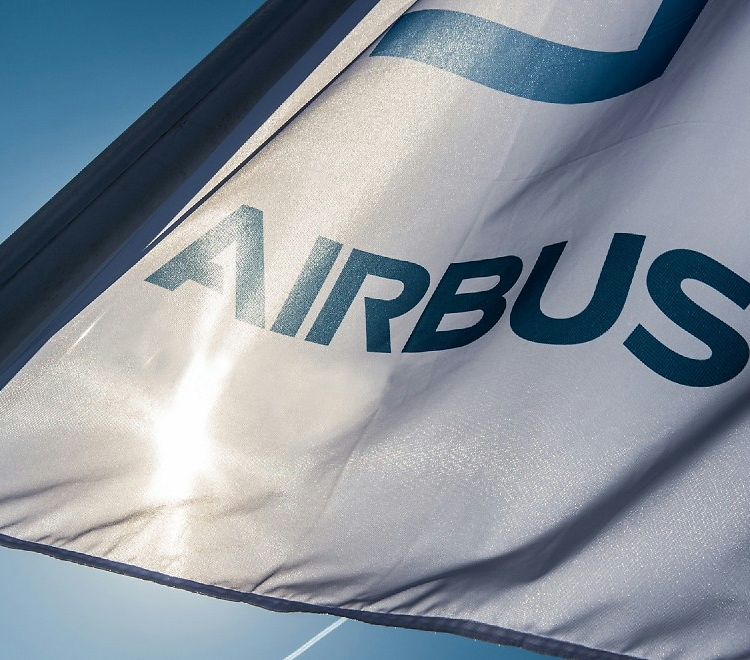Summary
- Airbus North America Engineering locations in Wichita, Kansas and Mobile, Alabama are continuing to add employees and expand facilities, underscoring Airbus’ position as a global company with a strong U.S. presence.
Airbus North America Engineering (ANAE) is growing significantly both of its U.S. facilities, boosting the number of American employees as well as the company’s infrastructure. ANAE Wichita (Kansas) is about to grow its staff by some 40 percent with the opening of a new, additional facility there. ANAE Mobile (Alabama) has achieved ahead of schedule its first-goal employment figure. Additionally, the head of that facility was just appointed Chair of the Mobile Area Chamber of Commerce. These milestones combine to secure Airbus’ position as a global company with a strong and growing American footprint.
There were 40 engineers employed at ANAE Wichita when it opened its doors in 2002. There are now some 210 people at that site. Just today, the lease formally was signed to expand into a neighboring building in Wichita – an estimated $1 million (U.S.) renovation with additional investments of some $1.5 million in equipment and technology. The transformation of the building will be underway shortly in anticipation of a ribbon-cutting later this year for the new office that will ultimately add 80 new positions to ANAE Wichita. The Airbus team in Wichita is made up primarily of design and stress engineers working on wings of new and existing models of Airbus aircraft.
“When we opened our doors in Wichita, it was an ambitious move for us – we’d never before had an engineering presence in the U.S. But what we knew then is reinforced now – to move ahead in this business, you need to go and grow where the technical talent is,” said Barry Eccleston, President and CEO of Airbus Americas. “Now with two American engineering facilities, we can work across the time zones, in tandem with our European colleagues, optimizing our research and development efficiency. Airbus is a prime example of global industry investment in the U.S. economy.”
The second facility, ANAE Mobile, achieved at the start of this year the 150-employee mark anticipated and announced at that office’s opening in 2007. In addition, the Site Director of that facility, David Trent, was just named the Chairman of the Mobile Area Chamber of Commerce, a one-year tenure that personifies Airbus’ commitment to the local community.
“I was new to the Mobile area when we opened the Airbus facility here,” said Trent. “But very quickly, our team here has become ingrained in the local community, a community that has welcomed us with open arms. We plan to grow even more in the coming years, working on our world-class aircraft interiors and cargo systems.”
In addition to Airbus’ own job growth, the company has a strong and positive impact on other U.S. jobs and industrial capabilities. In 2008 alone, Airbus spent $10 billion with hundreds of U.S. suppliers in more than 40 states, translating into Airbus support of more than 180,000 American jobs. (2009 data is pending) Cumulatively since 1990, Airbus has contributed more than $100 billion to the U.S. economy through direct employment, contract work, supplier business and collateral expenditure.
Included in the extensive Airbus network of U.S. suppliers are some of the most respected names in aerospace, including: Alcoa, Aviation Capital, Eaton, Goodrich, GE, Honeywell, McStarlite, Northrop Grumman, Rockwell Collins, Spirit Aerosystems, United Technologies and Vought Aircraft. In addition, Airbus has partnerships with many small and medium-sized U.S. companies like Faber, Electroimpact and GKN Aerospace.
Among the customers for the more than 2,600 Airbus aircraft ordered in North America so far are: Air Canada, FedEx, Frontier Airlines, GECAS, International Lease Finance Corporation, JetBlue, Delta/Northwest Airlines, Hawaiian Airlines, Spirit Airlines, United Airlines, UPS, US Airways and Virgin America. The balance of Airbus customers in the region are a mix of leasing companies, low-cost carriers and established large, legacy airlines, diversifying the Airbus customer base in one of the strongest markets in the world.
Airbus delivered a record 498 aircraft in 2009, and reached its order intake target for the year, winning a total of 310 orders (gross). As of New Year’s Day 2010, the backlog of Airbus aircraft stood at 3,488 aircraft, valued at more than $437 billion, and representing six years of production.
